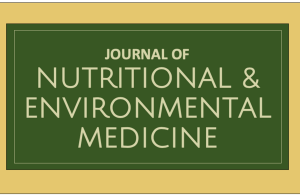Our nutrition practice is evidence-based and our team keeps up-to-date with the latest in nutritional science, including all key medical and science journals.
This means you get the best advice and recommendations to support your health.
Articles below on:
- Pregnancy
- Endometriosis
- Fertility
- Preconception care and the outcome of pregnancy
- IVF
- Obesity and Genetics
- Mental Health
- Stress
Pregnancy
Nutritional Supplements in Pregnancy

Nutritional supplements in pregnancy: commercial push or evidence based?
Published 2006 in Current Opinion in Obstetrics and Gynecology 18:642-7.
Purpose of Review
This review examines whether nutritional supplements during pregnancy have a role to play in the health of the mother, outcome of pregnancy or health of the baby. It will put into context the increased use of nutritional supplements in pregnancy and whether there is an evidence base for this supplementation.
Recent findings
Women are not consuming enough nutrients from their diet alone and food is depleted in many important minerals. There is increasing support that supplementation of specific vitamins, minerals and ω-3 fatty acids can have a positive impact on maternal health in terms of prevention of preeclampsia, miscarriage, preterm birth, low birthweight, gestational diabetes and also on the long-term health of the baby. There are some contradictory findings with antioxidants and prevention of preeclampsia, and these are discussed.
Summary
With soil depletion, overfarming and transportation of foods over hundreds of miles with loss of nutrients en route, together with the increased use of convenience and fast foods, women can be over-fed, but under-nourished in our modern society. These can lead to nutrient deficiencies which can have an impact on the outcome of pregnancy. Evidence shows that supplementation can play a valuable role in the health of the pregnant mother and her baby. Emphasis must always be on eating a good diet but given the limitations of the 21st century lifestyle and the nutritional content of food, good quality nutritional supplements should be used during pregnancy in combinations rather than isolated single nutrients.
Endometriosis
Nutrition and Endometriosis
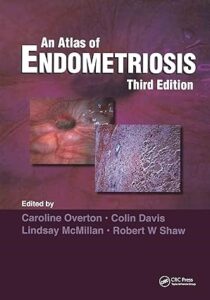
Dr Glenville was invited to write a a chapter on Nutrition and Endometriosis for ‘An Atlas of Endometriosis’ 3rd Edition edited by Drs Caroline Overton, Robert E. Shaw, Lindsay McMillan, and Colin Davis
Published 2007 by Informa Healthcare
The focus of the nutritional approach to endometriosis is to reduce pain, lower oestrogen levels, improve liver function, control prostaglandin production to lower inflammation, increase sex hormone binding globulin (SHBG) and improve immune function.
Fertility
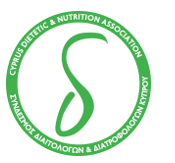 Dr Glenville presented at the Cyprus Dietetic and Nutrition Association International Conference
Dr Glenville presented at the Cyprus Dietetic and Nutrition Association International Conference
Dr. Glenville presented at an international medical conference in Cyprus in 2016 on:
Fertility and Nutrition- The essential role of adequate micronutrient status pre-conceptually for both male and female fertility
Fertility is multi-factorial and needs to be addressed in terms of a number of areas including medical problems, lifestyle, age, nutrition, stress, environmental and occupational hazards. There is sufficient evidence to support the view that nutrition has a valuable part to play in improving both male and female infertility.
This presentation covered the evidence base from the medical literature showing that many nutrients have an impact on both male and female infertility and the prevention of miscarriage. It covered dietary interventions and also specific nutrient supplementation including zinc, vitamin C etc. The role of certain nutrients like vitamin D and Omega 3 essential fatty acids will be covered in general and also in relation to immunological factors affecting female fertility. Sperm health, sperm DNA fragmentation, reactive oxygen species and the use of antioxidants in male infertility was also covered.
It also looked at how certain lifestyle factors e.g. smoking, alcohol and occupational and environmental hazards can impact fertility. The use of nutrition during assisted reproductive techniques was also discussed.
This presentation also covered the most important nutritional tests for checking for deficiencies and imbalances.
It is now not enough to just recommend couples to eat a ‘well balanced diet’ as it is clear from the research that most people are not getting adequate nutrient levels from their food alone. This is of particular concern with women who can be either overweight and undernourished or permanently watching their weight, restricting their calories and often on no fat or low-fat diets with inadequate intake of essential fatty acids along with other nutrients. It is also not enough to supplement with only individual nutrients such as folic acid as the synergistic effect of nutrients needs to be considered.
Fertility
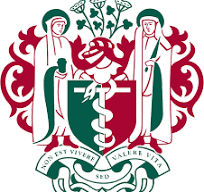
Dr Glenville was invited to give a presentation at The Royal Society of Medicine (RSM) as part of the celebrations to mark the RSM’s bicentennial year 2005 in conjunction with the Prince of Wales’ Foundation for Integrated Health
Dr. Glenville presented on:
The Integrated Approach to Infertility
Preconception Care and the Outcome of Pregnancy
Nutrition and Preconception Care
Collaborated in a study on Preconception Care and the Outcome of Pregnancy undertaken by the University of Surrey and published in the Journal of Nutritional and Environmental Medicine.
This study investigated the effects of controlled nutritional intake during the pre-conceptual period on fertility, recurrent miscarriages, small for dates babies and malformations.
Published 1995 in the Journal of Nutritional and Environment Medicine, 5, 205-208.
Nutrition to support Assisted Conception
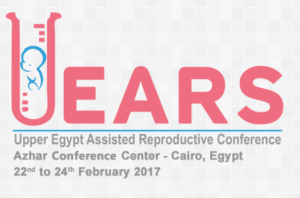 Presentations at International Medical Conference – Upper Egypt Assisted Reproductive Conference
Presentations at International Medical Conference – Upper Egypt Assisted Reproductive Conference
Glenville Nutrition presented at an international medical conference in Egypt February 2017. The conference covered medical updates and the latest research in assisted reproduction. Glenville Nutrition was the only nutritionist to speak as part of 150 international delegates with 1800 attendees and gave 2 presentations:
Modifiable Nutritional and Lifestyle Factors in Sperm DNA Fragmentation
Strategies to Reduce Overweight in IVF
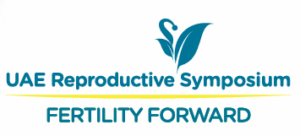
Dr Glenville was invited to give a presentation at the International Fertility Symposium in Dubai in 2015 organised by Fakih IVF Clinic.
Dr. Glenville presented on:
Nutrition in reproductive health and assisted conception and recurrent miscarriage
Obesity and Genetics
 Dr Glenville presented at the Cyprus Dietetic and Nutrition Association International Conference
Dr Glenville presented at the Cyprus Dietetic and Nutrition Association International Conference
Dr. Glenville presented at an international medical conference in Cyprus in 2016 on:
Individualising the diet for obesity based on genetic testing.
There is increasing awareness among researchers, educators, healthcare professionals and consumers that the one-size-fits-all, population-based approach to nutritional guidance is inefficient and often ineffective. This awareness has created a growing market for personal, genetic testing advice.
Recent advances in human genomics have uncovered extensive variations in genes affecting nutrient metabolism, but their full impact on nutrient requirements remains to be elucidated. Differences in the rates of absorption, distribution, uptake, utilization, biotransformation and excretion influence the concentration of nutrients at a target site of interest, which ultimately impacts nutritional needs.
Research has shown that DNA-based dietary advice is superior to population-based recommendations at motivating changes in eating behaviors. Incorporating markers of genetic variation into studies of nutrition and health, aims to benefit those seeking personalized dietary advice by proving sound scientific evidence linking diet and health. This presentation will explain the science of nutrigenomics and cover the most important markers in terms of nutrition and physical activity that impact on weight management, cardiometabolic health, nutrient metabolism, food intolerance, eating habits, physical activity and injury risk.
Mental Health
 Dr Glenville was invited to give a keynote presentation at the ISC International Congress on Trauma and Attachment in London in 2019 to an audience of over 500 psychiatrists, psychologists and psychotherapists from around the world.
Dr Glenville was invited to give a keynote presentation at the ISC International Congress on Trauma and Attachment in London in 2019 to an audience of over 500 psychiatrists, psychologists and psychotherapists from around the world.
This was the first time that a nutritionist had ever spoken at a conference concerning mental health.
Dr. Glenville’s keynote speech was on:
The Role Nutrition Plays in Healing from Trauma
Mental and physical health are fundamentally connected and nutrition has the potential to influence the impact of trauma and PTSD. Oxidative stress, inflammation and changes in the gut microbiome are some of the physical effects of stress which can be reduced by changes in diet. Prolonged stress can deplete the body of essential nutrients and using nutritional support can combat the negative effects of stress. Also the chronic activation of the fight or flight response can be reduced by changes in patterns of eating, food choices and timing of food.
Stress

Dr Glenville gave a keynote presentation for the International Stress Management Association at their Annual Convention held at the British Psychological Society in London in 2016. ISMA are the lead professional body for stress management, wellbeing and performance.
Dr. Glenville’s keynote speech was on:
Using Nutrition to Reduce Stress
This presentation explained the connection between stress and nutrition – how what people eat and drink can affect not only their level of stress but also energy, moods, depression, headaches, digestive problems and general anxiety. It showed how you can support them in controlling the stress response by changing their pattern of eating and why this is also important for their future health. This link between the mind and body shows how nutrition can have a positive impact on mental focus, concentration and decision-making abilities. The use of specific nutrients to reduce the stress response was also discussed including testing for adrenal stress. This was an essential nutrition talk for anyone involved in supporting those combatting stress.
And also, Dr Glenville was invited back again to present at ISMA’s Online Global Stress and Wellbeing Summit in 2020 to coincide with International Stress Awareness Week.
Dr. Glenville’s presentation was on:
Nutrition, Mental Health and Wellbeing
Also contributed an article on The Importance of Nutrition and Sleep for Mental Health and Wellbeing, for ISMA’s book on Workplace Wellbeing.
Research undertaken at the Medical Research Council Psychophysiological Department in Cambridge:
Glenville M., Broughton R., Wing AM. and Wilkinson RT (1978)
Sleep, 1, 169-176
Glenville M (1979)
Chronobiologia IV, 2, 101
Glenville M and Broughton R (1979)
Chapter in P. Passouant (ed.)
Proceedings of the Symposium ‘Pharmacology of the States of Alertness’.
Glenville M and Wilkinson RT (1979)
Ergonomics 22, 8, 927-933
Glenville M, Broughton R, Wing AM and Wilkinson RT (1979)
Chapter in C. Mackay and T. Cox (ed)
Response to Stress published by IPC Science and Technology Press
Read our published study in relation to Sperm DNA Fragmentation here
Read our published study in relation to Magnesium in Pregnancy here.
Read our published study in relation to Safety and Efficacy of Supplements in Pregnancy here.
Read our published study in relation to Iodine Status In Front line Healthcare here.
….. and many more.
